The Age of Manufactured Phobias: How Politics Learned to Play Doctor
Islam has no right to be exempt from criticism. “Islamophobia” is a manipulative, authoritarian myth.
If you believe in the importance of free speech, subscribe to support uncensored, fearless writing—the more people who pay, the more time I can devote to this.
Please subscribe to receive at least three pieces /essays per week with open comments. It’s $6 per month, less than USD 4. And now take 50% off.
Everyone says, "Hey, it’s just a cup of coffee," but please choose my coffee when you come to the Substack counter. Cheers.
You’ve met them. The fellow who has to take two Xanax and a couple shots of gin before he boards a plane. The otherwise competent woman who can’t stand on a balcony without vertigo seizing her spine. The arachnophobe who shrieks at a tiny spider, as if face-to-face with its 8-legged apocalypse.
And then there’s the weirdest: arachibutyrophobia, the fear of peanut butter sticking to the roof of your mouth—curable with milk?—and anatidaephobia, the paranoid notion that a duck is watching you from somewhere. Comic, tragic, but at least harmless.
These are genuine phobias, irrational terrors met with therapy or laughter—not cancellation, expulsion, or ruin. Yet today, dissent is pathologised. “Phobia” isn’t a medical classification so much as a verdict.
And here lies the authoritarian trick: Islam, uniquely among world religions, has been elevated as if it deserves exemption from criticism, mockery, or even factual scrutiny. Welcome, “Islamophobia.”
It does not.
“Islamophobia” is not a diagnosis but a manipulative myth designed to protect bad ideas with the shield of victimhood.
But in today’s West, “phobia” has been stolen, weaponised, and deployed as a bludgeon. It is no longer a medical classification but a political verdict.
“Homophobia,” “Islamophobia,” “transphobia”—drop the suffix and debate ends. Without trial, without defence, without nuance, without mercy. Your words have been rebranded as pathology. You’re sick, they say. But compassion for the “sick” has gone missing. You’re fired. You’re banished. You’re erased.
Take my case. At the University of Guelph-Humber, my career—fifteen years of teaching, publishing, mentoring, high evaluations, beloved by students—was vaporised because I committed the heresy of calling Hamas what they are: Nazis.
The cost? About two million dollars in future earnings.
Twenty months of suspension, and in that time, not once did the university respond to, read, or refute a single argument I made. A complete institutional shunning. They could not respond with reason because they had no case, no reason, only animus, ignorance, prejudice and hysteria.
They cancelled the judicial hearing and went straight to the verdict.
They were not listening. They behaved like religious fanatics, not academics. I was a heretic. I was the threat.
A vice-provost roamed the campus the day I was suspended—a month before I was even given charges—shrieking to faculty and staff that no matter what, the heretic would be fired—Torquemada with a lanyard.
This is the model—pathologise dissent. Diagnose an opinion as a sickness. Expel the patient rather than heal them, as if they need healing; the accusers do.
In British Columbia, nurse Amy Hamm? She was fired and fined $93,000 for thought-crime—her views on sex and gender. According to a PRRI poll, 65% of adults agree with her, and I’m sure if we went outside the fanatical indoctrination factories of the West, it would be a fraction of that.
Two genders, you mean the perceived wisdom of recorded history?
Bury her, strip away her livelihood, hang her high. She might not be able to pay her monthly mortgage, but who cares—she’s a “phobe.”
Every epoch coins its word for blasphemy. The priests called it heresy. The commissars called it counter-revolution. The inquisitors called it witchcraft.
Today’s commissars of the faculty lounge call it “phobia.” It is the same ancient racket in new syllables: the criminalisation of doubt, the medicalisation of dissent, the moral inversion that makes the dissenter sick and the persecutor sane.
We are told that to question dogma is pathology, that to notice biology is hate, that to defend reason is “violence.” But the pattern is as old as the scaffold: burn the heretic, stone the witch, expel the phobe. The vocabulary has changed, but the bonfire is still lit.
And so let us be clear: the word “phobe” is not an insult—it is a medal. It is the laurel wreath worn by every sceptic, dissenter, apostate, and free man who ever lived.
If the choice is between reason in exile and dogma enthroned, I know which side I stand on. And good on you too, Amy.
And look at the political class. NDP MP Charlie Angus floated the idea that merely being positive about fossil fuels should be criminalised—climate dissent as heresy. Imagine criminalising optimism about oil.
This is what happens when moral vanity is cross-bred with authoritarian impulse: debate ends, censure begins.
Meanwhile, the sacred suffix “-phobe” is reserved only for the protected. There is no “Christian-phobe,” no “Jew-phobe,” no “Hindu-phobe.” No “India-o-phobe.” One faith and a few identity groups get the umbrella of grief. Others get tarred, feathered, and fired.
The universities and institutions have effectively given Muslims and pro-Palestinians carte blanche: call Jews pigs, apes, monkeys; say Hitler had the right idea; tell Israelis to go back to Poland; call for nine million Jews to be exterminated, no biggie.
But say one wrong thing about the protected class? Fire him. Fine her. Destroy them.
And the young? The students I once taught? They have been catechised into this worldview. Surveys show it. Nearly half of Gen Z think free speech should be restricted if it offends minorities.
A majority want “safe spaces” and “hate speech” bans, with the power to define hate conveniently left in their hands. They truly believe—honestly, deeply—that if you offend someone, your life deserves to be ruined. They think that free speech is the freedom to agree with them.
And only certain people are not allowed to be offended, and only their lives are allowed to be avenged. This isn’t organic sensitivity. This is indoctrination. They were taught it from kindergarten up. Speech is violence, disagreement is disease, offence is injury, and injury demands punishment.
And here’s where the pathology metastasises. By medicalising disagreement, we invite tribalism and factionalism. Label your opponent “phobic”, and they’re no longer a rival in debate but a carrier of disease. You can’t reason with a germ; you quarantine it, purge it, eradicate it.
That’s how free societies fracture into sects. When words themselves are cast as contagion, argument gives way to exorcism.
The “human rights” sect institutionalises this madness: harassment becomes hearing something you don’t like. At the same time, safety is no longer a condition of physical protection but an emotional cocoon in which disagreement never intrudes. Safety as an emotional entitlement is not progress—it’s tyranny by mood swing.
The result is a society where the wounded feelings of the Human Rights Victimisation Class are treated as real wounds, as if words themselves were knife assaults. But the diagnosed “phobes”—the supposed mentally ill—are shown no mercy. No healing. No accommodation. No compassion. No Bell Let’s Talk for them—just termination, banishment, exile.
And it’s not as though this hypersensitivity is theoretical. It’s backed by blood. Samuel Paty, a French schoolteacher, was beheaded in 2020 by an offended Islamist for showing cartoons in a classroom discussion on free speech. Salman Rushdie’s Satanic Verses brought a fatwa that followed him for decades, until two years ago, he was stabbed onstage in New York, and today he still bears the scars.
The Danish cartoons mocking Muhammad led to embassies being torched and artists being in hiding. Theo van Gogh was butchered on a Dutch street for a film.
Charlie Hebdo’s cartoonists were gunned down in Paris in 2015—journalists executed for sketches. Teachers in Britain have been hounded into exile for showing images in class. In Pakistan, mobs lynch people on rumours of blasphemy. In Nigeria, churches burn because of whispered insults. This is what happens when “offence” becomes a weapon: heads roll, literally.
The notion that Muslims—especially the most vocal ones—are somehow above mockery is a modern myth. It’s a prejudice dressed in victimhood syndrome.
Ask yourself: what else explains the reflexive shrieking the moment someone else dares to think, question, or joke? They don’t just disagree—they pathologise dissent: you’re not wrong, you’re suffering from a phobia. That, my friends, is a conversation-killer.
It’s an ominous psychological echo: collective paranoia, conviction of perpetual persecution, a turn away from self-reflection toward mass grievance. Not a mental health issue—an institutional culture of mental illness.
We are inflicting a grotesque experiment upon the West: allowing people from systems that crushed dissent and prosecuted jesters to walk into our classrooms, our newsrooms, our parliaments—and demand we supplicate to their every imagined slight. If strength is defined by forbidding laughter, we have already lost.
Now, let’s not pretend this has anything to do with piety. What’s the dominant religion in most authoritarian regimes? Islam. Only a handful of Muslim-majority countries even pretend to be democratic, and those that qualify are fragile, flawed, or one coup away from reverting to the default setting of autocracy. Piety?
Sweden, once the parlour model of social democracy, now finds itself embarrassed by statistics it would rather cremate than confront: nearly two-thirds of those convicted of rape since 2000 are immigrants or their sons. In stranger-on-stranger assaults, the figure climbs to a Stalinist majority—80 percent.
The bureaucrats and criminologists dutifully intone about “socioeconomic variables,” as though poverty and unemployment compel only foreigners to unzip without consent. And yet, to mention these facts is to risk being branded with the very suffixes—“-phobe”—that now do the work of argument. Thus, reality is not disputed, merely punished, like heresy in clerical Sweden. Liberal democracy is not the conductor of that orchestra—it isn’t even in the building.
Yes, there are exceptions—Bosnia and Herzegovina, Albania, and even Malaysia, which has clawed its way to a “flawed democracy” rating. But such examples are rarer than public radio in North Korea. The overwhelming majority of Muslim-majority countries are authoritarian states, theocratic dictatorships, or tribal monarchies, particularly in the Middle East, North Africa, and Central Asia.
Meanwhile, in Gaza and the West Bank, the cultural programming seems to be a permanent victimhood complex. Real or imagined, everything is someone else’s fault—Israel, the West, the Jews. Personal responsibility? Accountability?
Never heard of it. It’s a kind of collective paranoia: a conviction of perpetual persecution, a culture built on grievance, where self-reflection is traded for slogans and martyrdom. Not a mental health issue—an institutional culture of mental illness.
And what of the argument that “Muslims want democracy”? Check the polls: Lebanon, Turkey, Egypt, Tunisia, Jordan, even Pakistan—millions express a strong desire for democracy. But desire alone doesn’t overcome the chokehold of authoritarianism. It ends up like clapping in a silent movie: hopeful yet helpless.
This is what happens when mockery is banned and offence is weaponised. And now—astonishingly—Western institutions are importing this framework wholesale.
Those who fled censorship in the old country demand it here too. They arrive in Canada, Britain, America, and rather than embracing the rare, fragile tradition of free speech—a tradition soaked in centuries of struggle—they demand the censorship of the places they left behind.
And our leaders, our universities, our corporations—they give it to them. Our kindness is mistaken for weakness. And yes, I suppose the bullies are right.
Mockery is not cruelty. It is the sunlight of the mind. It keeps religion, ideology, and politics honest.
The Mormons knew this when The Book of Mormon musical lampooned their faith. How did they react? With humour, with ads, with neighbourly casseroles and noodle soup. They smiled, as Mormons tend to do, because they’re probably the nicest people on earth.
The worst they’ll do is show up in a slightly dirty white shirt. Kazakhstan was humiliated in Borat. Result? A tourism campaign flipping the insult into a joke. No bombs. No blood. No book burnings.
Contrast that with Islam, which has proven again and again that its “sky daddy” is the most insecure deity of all.
Christianity endured Piss Christ. The Virgin Mary has been mocked in every imaginable way. Hinduism, Buddhism, and Judaism—all subjected to parody, insult, and art. Nobody liked it, but nobody turned it into murder. Only one faith routinely responds with violence, bans, and tribunals. Only one faith demands state protection for its delicate ego.
And here is the larger point: no religion, no institution, no ideology should ever be above mockery. A god who cannot withstand mockery is no god at all, but a glass idol propped up by censors and policemen.
A politician who cannot be lampooned is a tyrant in waiting. A university that cannot endure debate is a seminary of stupidity. Erdogan in Turkey jails cartoonists. That is not a strength. It is weakness dressed as fury.
This is why Salman Rushdie matters, why Charlie Hebdo matters, why Theo van Gogh matters. Why every cartoon, every joke, every skit matters. Because mockery is the last defence of liberty, kill it, and you kill freedom itself.
As Voltaire warned: “To learn who rules over you, simply find out who you are not allowed to criticise.” We know exactly who that is today. And it is not the Christians. It is not the Jews. It is not the Hindus. It is the perpetually aggrieved, privilege-armoured faith and its fellow travellers in the grievance industry.
Which brings us back to the universities, which operate like the most brittle of cults. My own at Guelph-Humber behaved not as scholars but as inquisitors. They were like medieval monks, except less literate. They simply declared me unclean, a heretic, a danger. The trial was unnecessary. The verdict was in.
And here’s the kicker. South Park’s Eric Cartman, the anger-challenged child tyrant, is the perfect prophet for our age. “Respect my authoritah!” he bellows, absurdly. That is exactly the posture of our most privileged religion and its allies in woke bureaucracy. Respect my authoritah, or else. It is also the posture of my university, of Charlie Angus, of every censor who mistakes fragility for power.
But we must never respect their ‘authoritah’. We must mock it, lampoon it, drag it through the mud because mockery is democracy’s immune system. Without it, offence becomes violence, dissent becomes pathology, and freedom becomes a memory.
And so we are left with this grotesque inversion: the man who insists “a duck is watching me” is rightly pitied, even chuckled at, while the man who points out that Islam—or any ideology—cannot be exempt from mockery is branded with a diagnosis, fired, ruined, or worse.
No one demands that Donald Duck be airbrushed from the culture lest he offend the anatidaephobic, yet entire universities and parliaments quake at the possibility of offending a cleric.
Ducks are spared our trembling genuflection; only Islam gets it. That is the scandal. If we are now to live under the rule that a delusion deserves protection, then let us at least be honest and say it: we are governed not by reason, but by ducks.
If you found value in this article and wish to support my ongoing work, please consider leaving a tip. Your support helps me continue producing uncensored content on critical issues.



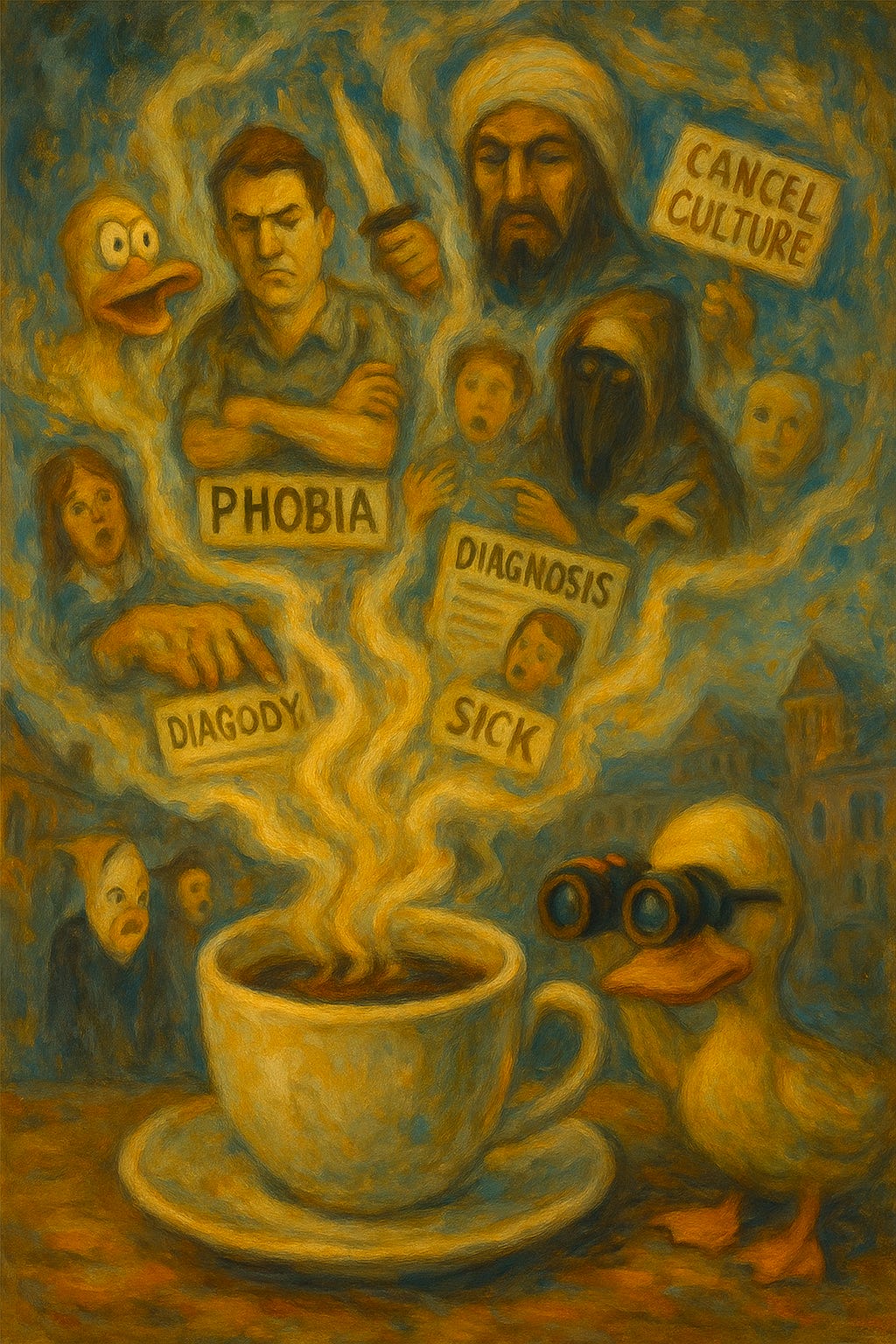
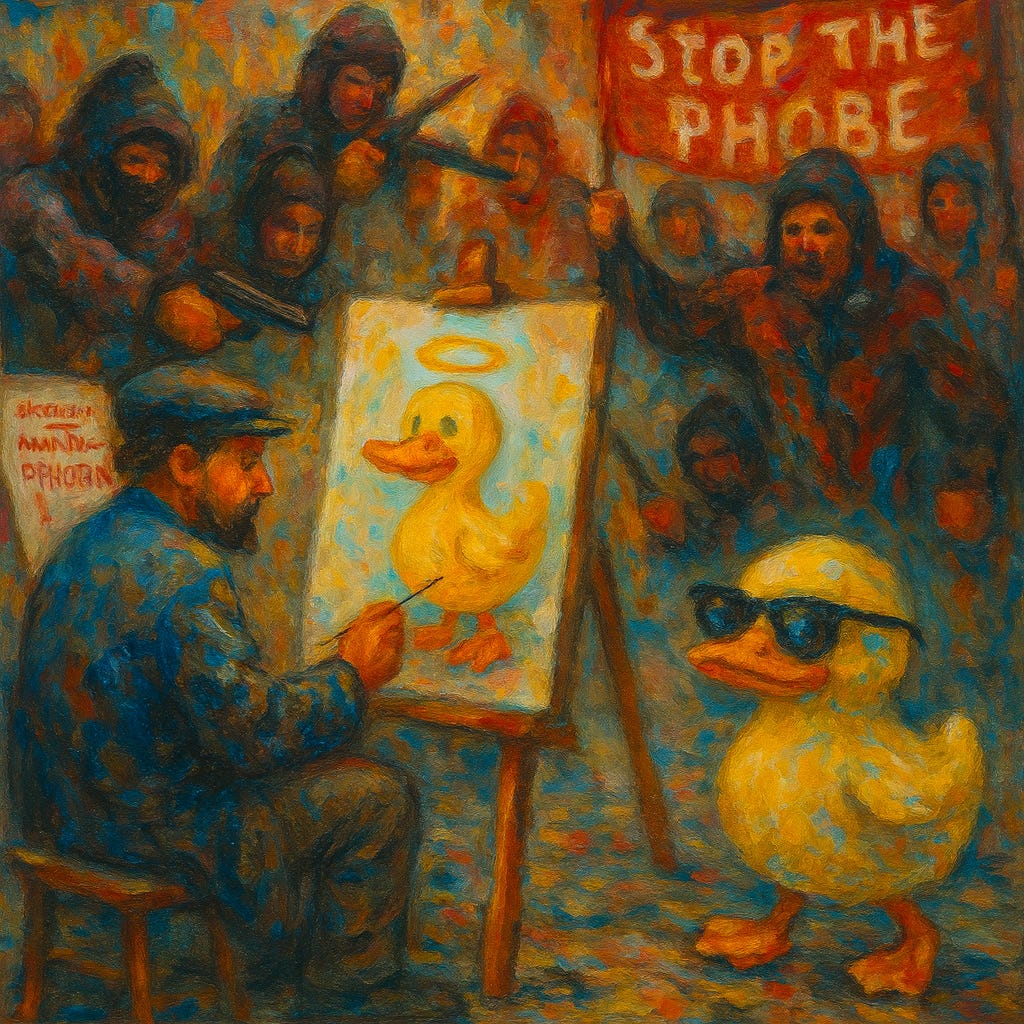
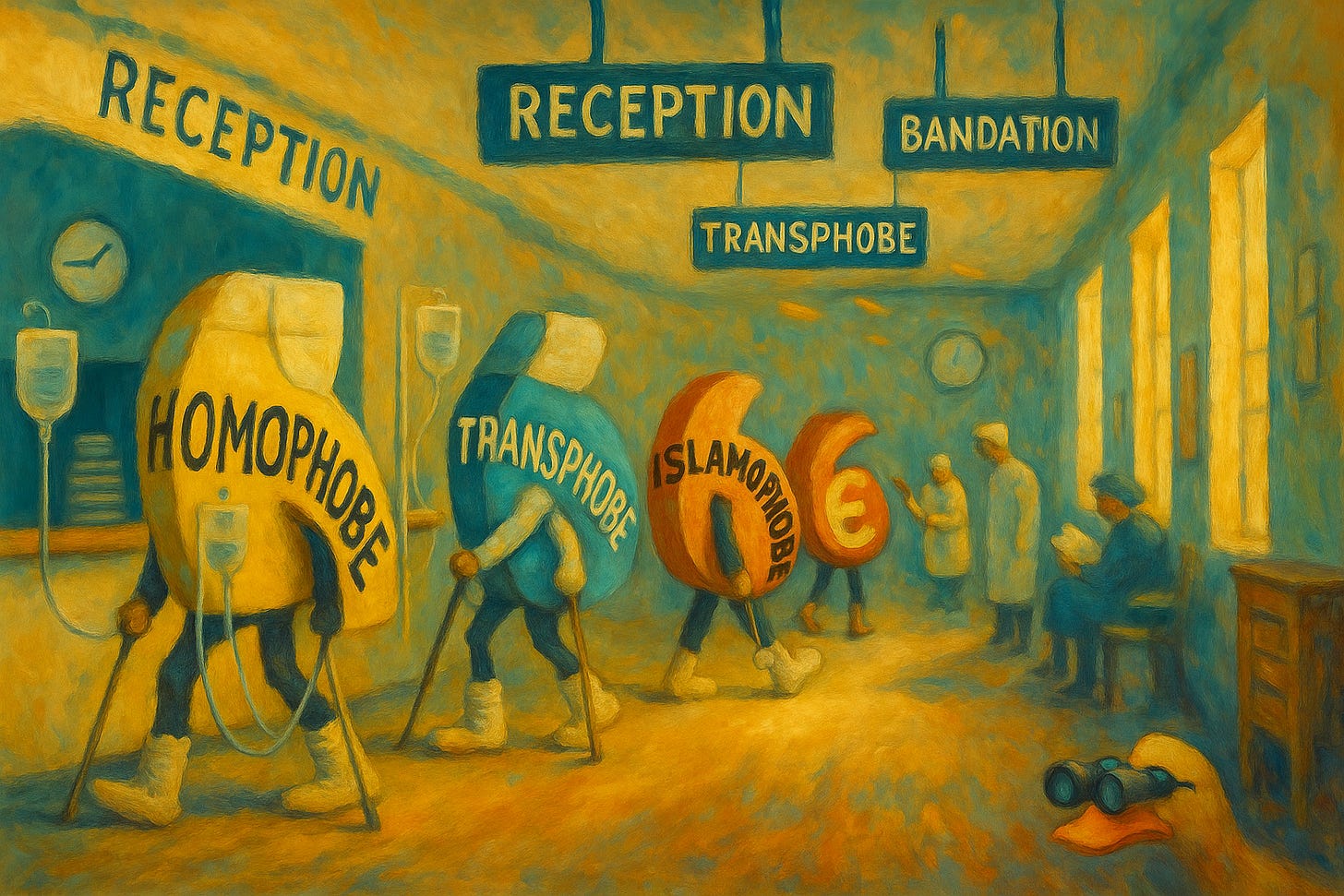
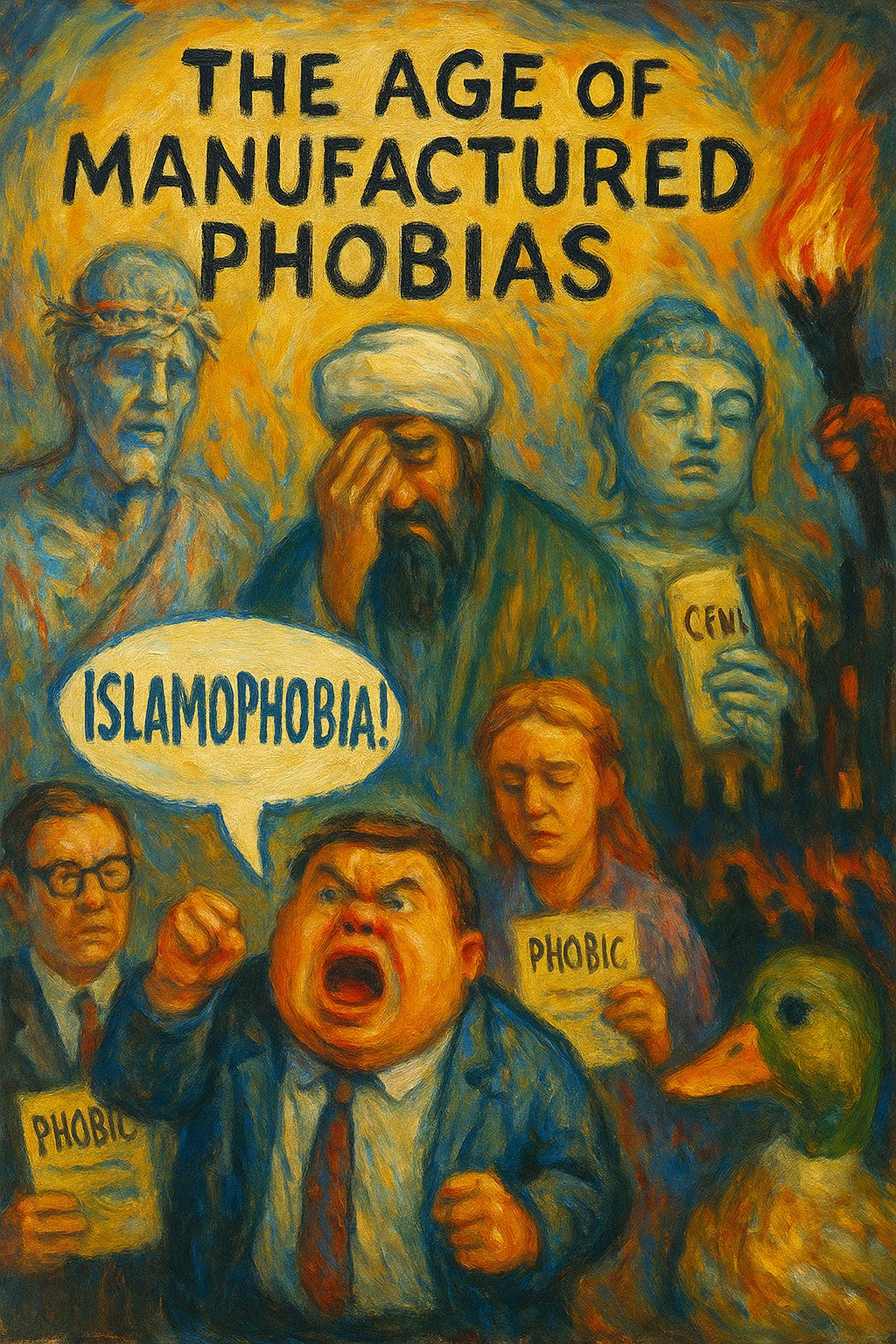
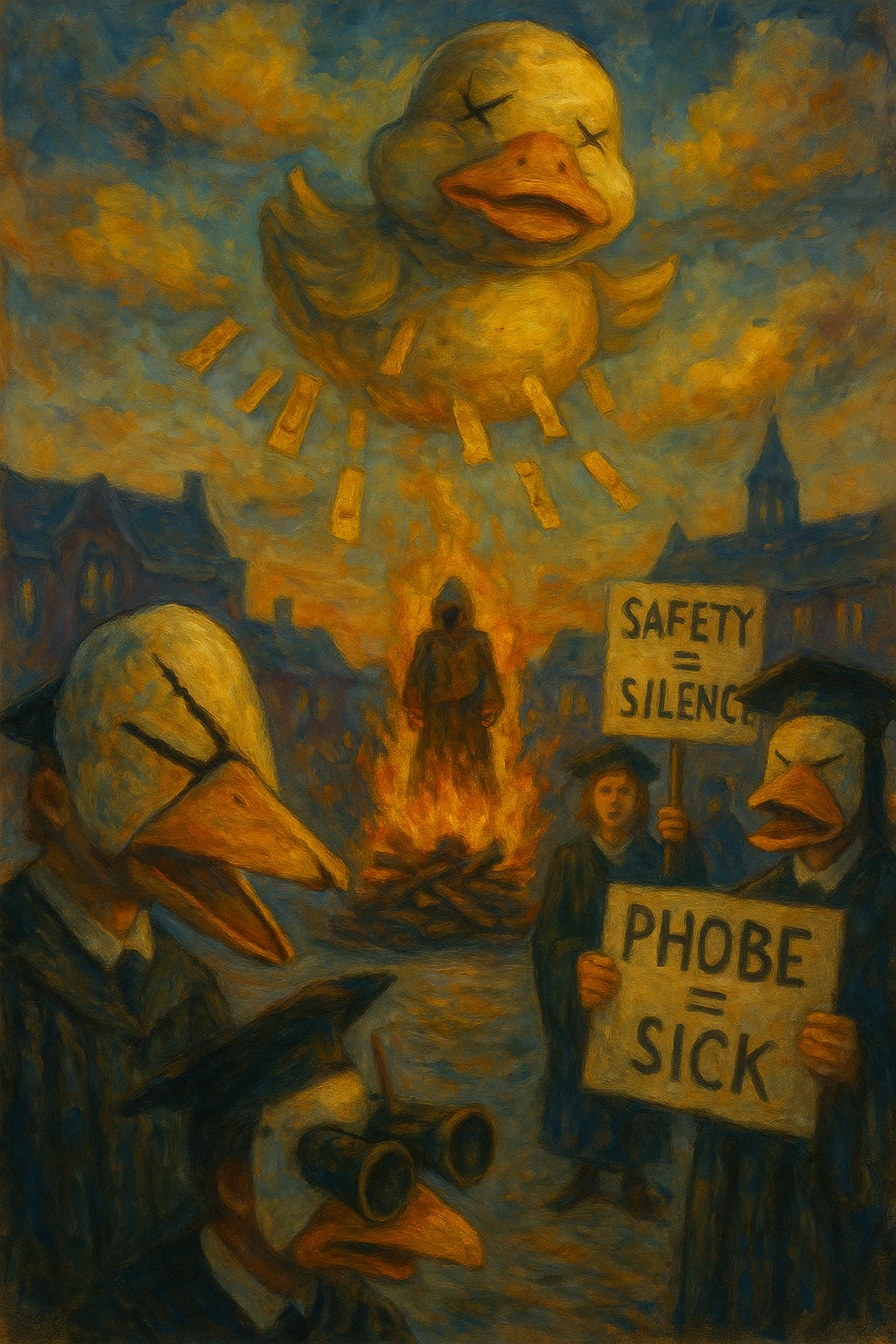
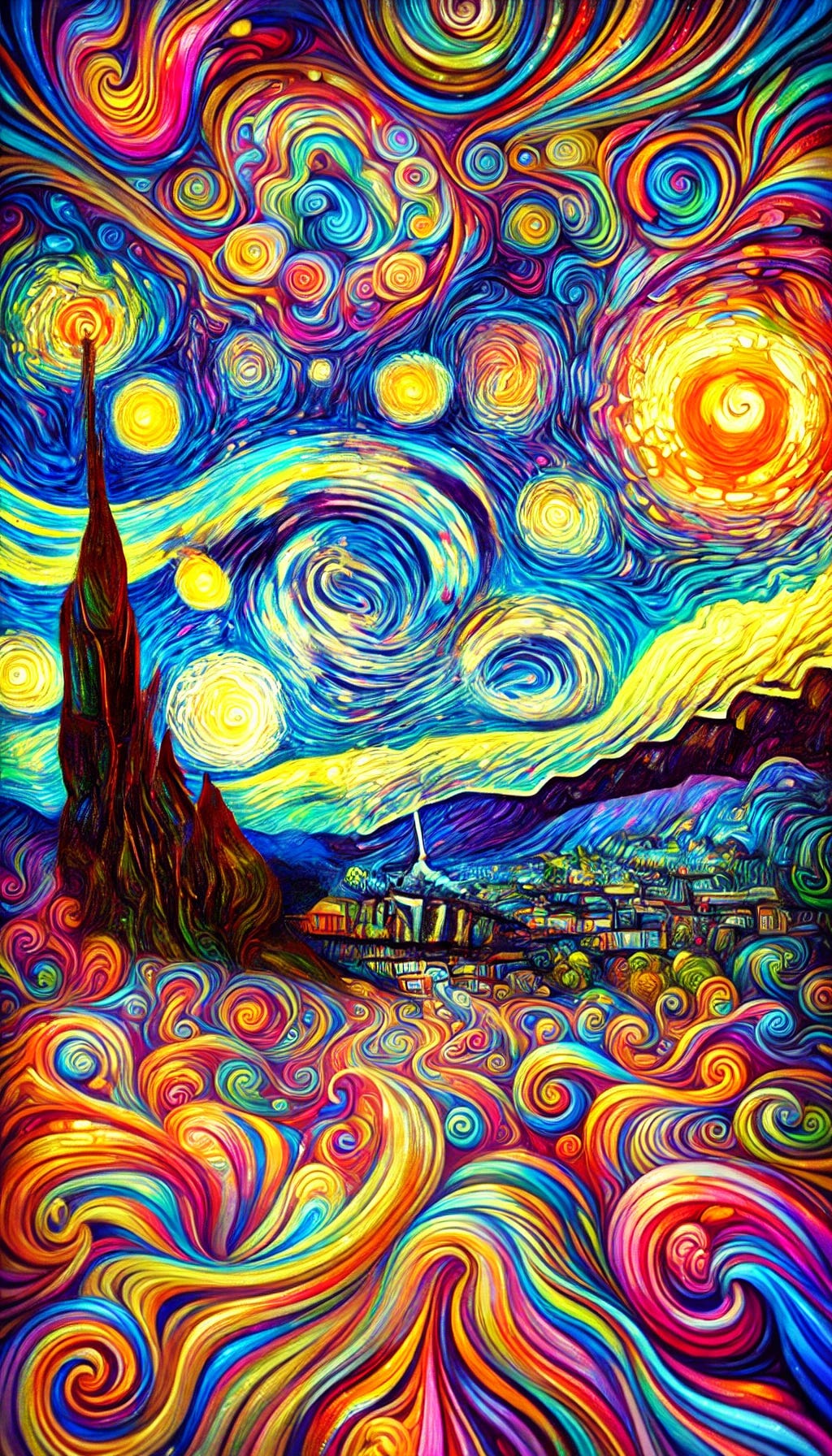
This is really good. Its important to recognize that the use of the word 'Islamophobia' really is manipulation, and its specifically designed to conflate criticism of Islam the religion (legal and perfectly acceptable) with criticism of the what are basically Arabic peoples (not necessarily illegal but not good and can devolve into legally defined hate speech). There is already a word in fact to describe anti-Arab sentiment, and that is anti-semite, as Arabs are semites.
As you point out this manipulation has been carried out by Islamic supremacists to stop criticism of what is basically political Islam.
The problem is that the useful idiot western progressives fall for this every time. I intend to start writing local politicians to ask them cut it out, because criticism of Islam is perfectly acceptable and must remain so.